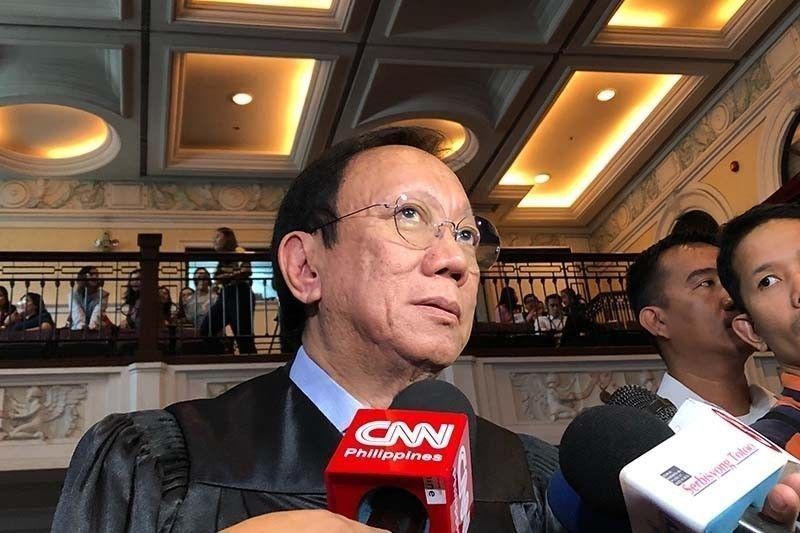OSG: Anti-Terrorism Council's actions may be appealed before Office of the President

MANILA, Philippines — Actions of the Anti-Terrorism Council can be appealed before the Office of the President, Solicitor General Jose Calida told the Supreme Court in an 812-page memorandum defending the Anti-Terrorism Act of 2020 that created it.
The memorandum addressed issues raised in the oral arguments on the 37 petitions against the law.
During the debates, government lawyers insisted that the ATC’s powers are an executive abd administrative function. Senior Associate Justice Estela Perlas-Bernabe asked: “Where then would a person aggrieved by a designation made by the ATC appeal such action?”
Returning to this in their memorandum, the OSG said: “Actions of the ATC may be modified, altered, and set aside by the President on appeal pursuant to his Constitutional power of control over executive offices.”
ATC filled with the president's appointees
The ATC is composed of the executive secretary (chairperson), national security adviser (vice chairperson), and as members: the secretaries of foreign affairs, national defense, the interior and local government, finance, justice, and information and communications technology and the executive director of the Anti-Money Laundering Council.
The ATC is chaired by the executive secretary, the highest official at the Office of the President.
Under Section 45 of the law, the ATC shall implement the act and formulate plans and programs to prevent or counter the commission of terrorism.
The track record of President Rodrigo Duterte and his officials, whom critics have accused of creating a culture of fear and impunity, does not inspire confidence that the anti-terrorism law will not be used to target activists and dissenters, many of whom have been labelled by the state as rebels and enemies.
The ATC is composed of Cabinet members under the supervision of the Office of the President, and whose powers are but an adjunct of the plenary powers of the chief executive.
“Implicit in the President’s power of control is his authority to go over, confirm, modify and reverse the action taken by executive agencies under his office,” the Office of the Solicitor General added in its memmorandum.
“The Anti-Terrorism Act or any other special law does not provide for a procedure for appealing the actions of the ATC. Pursuant to the foregoing discussion, therefore, the ATC’s actions are appealable to the Office of the President.”
National Security Adviser Hermogenes Esperon, who also submitted answers to the SC’s questions through the OSG, agreed that the correct remedy from the ATC’s decision is an appeal to the OP.
Designation
Section 25 meanwhile states that the council may designate an individual or groups as terrorists upon probable cause. Designation may trigger the Anti-Money Laundering Council’s authority to freeze assets of suspected terrorists—which Chief Justice Alexander Gesmundo noted in the debates “affects the reputation both of person and property of designate.”
On the question of due process, Esperon asserted that a designated person is not left without recourse. “Once designated, he can oppose/question his designation and present evidence for delisting,” it added.
He added that the freezing of assets “does not partake of a criminal nature” and is a “prevention against possible financing of an impending terrorist attack.”
The law’s Implementing Rules and Regulation also state that those who were designated may file a verified request for delisting to the ATC, 15 days after the publication of the list. Grounds have also been provided which include change of facts or circumstance or newly discovered evidence.
But the court asked: How can a person designated by the ATC successfully claim and prove that there has been a change if he or she is not aware of the facts and circumstances relied upon by the ATC when it made the designation.
Esperon said this information"will be made available upon request of the designee."
So far, the ATC has not received any request for delisting from designates.
The family of peace consultant Rey Casambre, among the 19 recently tagged by the ATC as terrorists, said last weekend: "The ATC designation is the fruit of the poisoned ATA tree. Why and how would one seek or expect relief from a toxic brew by consenting [to] more of it?"
- Latest
- Trending


































